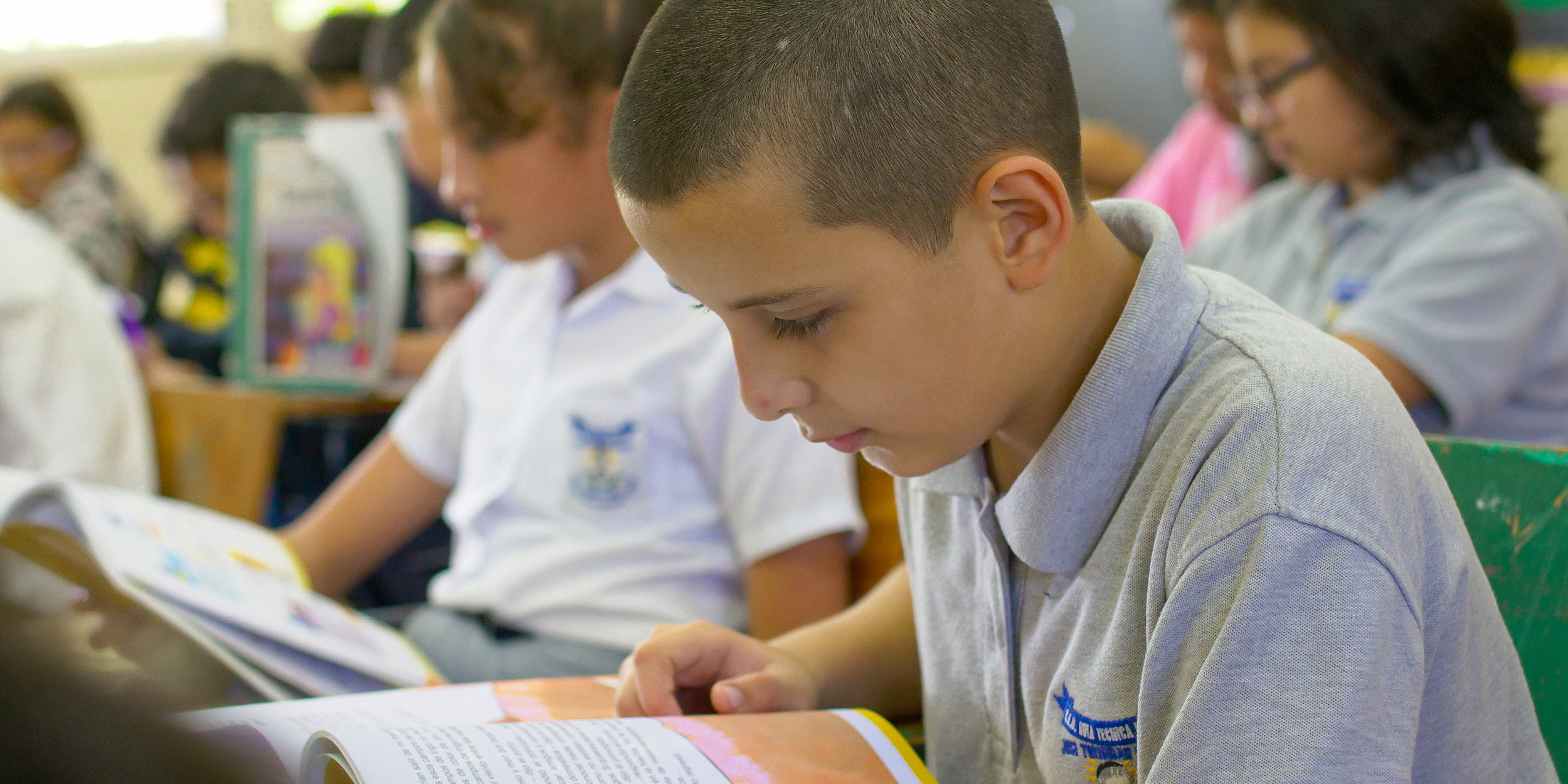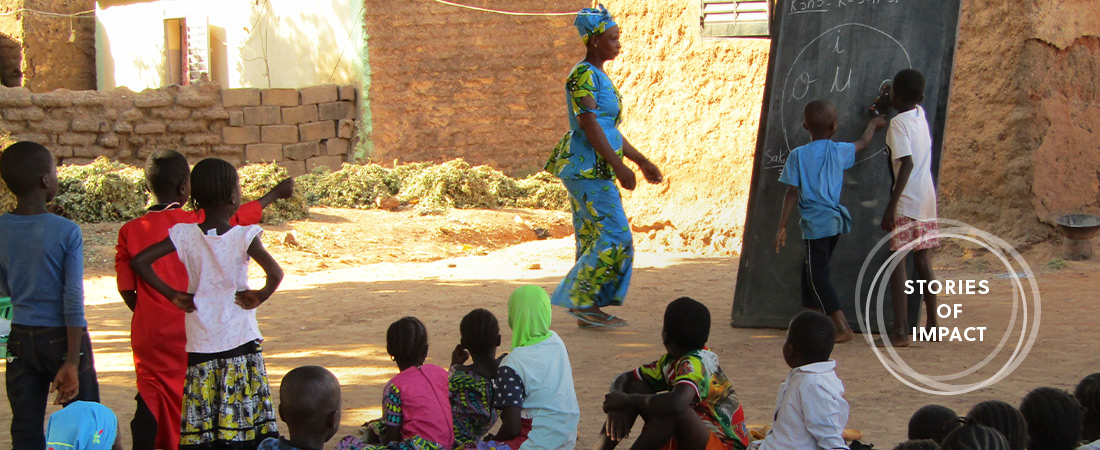Reflections: A Personal Reminder of Literacy’s Lasting Impact

Mary Sugrue is an EDC senior technical advisor with over 25 years’ experience supporting global literacy initiatives. She has worked with educators, ministries, and communities to develop teacher training programs, strengthen teaching and learning materials, and inform policy—always with the aim of improving education systems and expanding access to quality learning. This International Literacy Day, she reflects on how her personal and professional experiences continue to shape her belief in literacy as a fundamental right and a transformative force for change.
A Memory from My Mother’s Bookshelf
Childhood memories fade, events become blurry, and timelines grow a little fuzzy—but some things remain.
I’m five years old, at home, sitting on my parents’ bed, looking through a small assortment of books, papers, and old envelopes with my mom. We sit opposite each other as she carefully sorts through the collection, pausing to show me things that she thinks might be of interest: her wedding album, old letters from her sister. We admire the cursive handwriting, the postage stamps in foreign languages. Her eyes smile as memories from the past appear before her.
She moves on, looking for something specific. She pauses. I watch as her eyes scan, checking to see if everything is as she remembered. Her expression changes, as though encountering an old friend.
I lean forward to see what she is holding in her hands: a children’s book. The edges are worn. The colors are still bright, but the cover and pages seem fragile—it’s been read hundreds of times. In the corner of the cover, there’s a tiny piece of paper. It reads, “To Mary Paul…” She turns the book toward me and asks me, “Can you read it?” I read aloud, occasionally stumbling on unfamiliar words, but we work it out together. We read the short stories quickly.
Mom explains that she was around my age when she received that book. A family member—a teacher—had sent it to her from overseas. It was a time when personal books were scarce in Ireland, and it was the first book she could call her own.
Whatever else happened that day has long since faded away, but that moment has grown in significance to me over the years. It has become more meaningful, clearer.
I grew up in a house full of books. My mother pored over encyclopedias and dug into dictionaries for answers to crossword clues. There was always a book beside her bed. She repaired our worn-out favorites. It was hard to imagine that there was a time when books were scarce in her life, but that was true.
When my mother passed away this year at 87, there was much talk of how access to books and education had transformed her generation, and how they, in turn, helped improve opportunities for those who came after them. Powerful things happen through education. Literacy is an investment that benefits everyone—individuals, communities, nations, and the world.
I’m reminded of Malala Yousafzai, an education activist who grew up in Pakistan. In 2013, at the age of 16, she stood before the United Nations and said, “One child, one teacher, one book, one pen can change the world.”1 I understood what she meant. I thought of that one book. I understand why my mother kept it for over 80 years.
Today, on International Literacy Day, let us be clear: literacy is a fundamental human right for all. It is a powerful tool for transformation—a catalyst for health, equality, and economic growth. Books open worlds to children. Yet far too many children across the globe are still denied the right to read them.
We must understand the important role we play in creating opportunities for others to grow and thrive. We must use our voices and our actions to do better—to provide access to education, to support children and youth to learn, and to put books into the hands of those who cannot yet advocate for themselves.
I know my colleagues share this commitment. At EDC, we have worked with partners around the world for more than 65 years to ensure that every child—no matter where they are born—has the chance to read, learn, and thrive.
On this day, let us recommit to making that transformation possible. If we do not, we will never know the full potential of the future that could have been.
1UNICEF. (n.d.). Malala addresses youth delegates in UN. https://www.unicef.ie/stories/one-child-one-teacher-one-book-and-one-pen-can-change-the-world/







